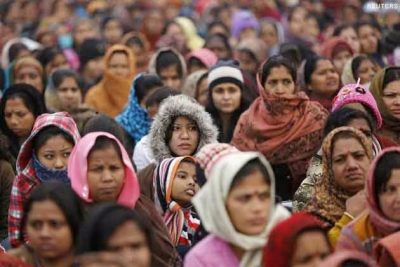By
Ayushi Singhal
Women and property – A look at succession among Hindus and a recent ray of hope
One of the facets of having a secular Constitution in India is ironically that different religions are governed by different rules (personal laws) in matters like marriage, separation and inheritance.
Succession among Hindus is governed by the Hindu Succession Act, 1956 (HSA here on) and is different for females and males, in matters of property. While it depends on the source of the property, there has been a history of implications that Hindu women can never own the property akin to males. They don’t own the property as individuals but as trustees of the source, which is either their husband or their father. Even when section 14 of the same act provides, that property of a Hindu female is to be hers entirely. Let’s look at it in legal detail, for change is now afoot.
Under the HSA, the property of a Hindu female has been divided into three categories. One, property inherited by a female from her father or mother. Two, property inherited from her husband or father-in-law and the third kind, the properties, not governed by the first two categories. Under Section 15 (read with section 16 of the HSA), the general rule for succession of all kinds of the properties is, that it will pass on to the children and the husband. However, in case there is no one in existence from the above at the time when succession opens, the first kind of property will be inherited by the heirs of her father and the second by the heirs of her husband. It is the succession procedure of the third kind of property, which includes the self acquired properties or properties received in any other manner or from any other source, provided the female has absolute rights in that property, which is under question in this article.
Section 15(1) of the act provides for a specific order, in which this property divests;
“(a) firstly, upon the sons and daughters (including the children of any pre-deceased son or daughter) and the husband;
(b) secondly, upon the heirs of the husband;
(c) thirdly, upon the mother and father;
(d) fourthly, upon the heirs of the father; and
(e) lastly, upon the heirs of the mother”
Consider the succession scheme for a woman who has no children and who is living separately from her husband’s family, her husband having expired and her in-laws having been cruel to her. She acquires substantial property after taking education using her parents’ collected resources. However if she doesn’t marry again, on the inadvertent death of this woman, in the absence of her framing a will (which is the case, more often than not) her property, since it is self acquired and not inherited from either the husband or the father will divest according to section 15 of the HSA as per the above specified order. Since no one exists for her in the first category, the heirs of the husband inherit next, which includes a whole range of blood relatives of the husband. If one glances at the heirs of the husband, it includes someone as distant in relation as the husband’s mother’s brother over her own blood relatives including her parents who actually invested the money in her education (see, the case of Om Prakash v. Radha Charan. On the other hand, the woman will never inherit from the property of such a blood relative of the husband. In this manner, marriage of a daughter becomes prejudicial to the blood relatives whereas the marriage of a son is beneficial (yes, there lies a hint of preference of sons over daughters)).
This goes against the very rationale behind the existence of succession statutes, which is to divest the property as closely in a manner in which the deceased would have wanted had (s)he been alive or a will had been made. For the same reason, a murderer is disqualified from inheriting properties of the person murdered. The female intestate succession scheme under the HSA then prima facie discriminates between males and females and is violative of the fundamental right to equality, since it discriminates only on the basis of gender (while discrimination on other grounds accompanied with gender is permissible, for instance discrimination on the ground of gender coupled with socio-economic considerations permits reservation of seats for women in the legislature, discrimination only on the grounds of gender is unconstitutional as per the existing constitutional law jurisprudence). However the scheme of the Act, until recently was saved, since it was believed that “… The object of the legislation was to retain property with the joint family upon marriage which brought males and females together forming one institution. It, therefore, accepted that in recognition of that position when the wife’s succession opened, the class known as heirs of the husband were permitted to succeed as a result of initial unity in marriage upon which the female merged in the family of her husband” Sonubai Yeshwant Jadhav v. Bala Govinda Yadav.
This archaic argument has been finally discarded in a recent Bombay High Court decision in Mamta Dinesh Vakil v. Bansi S. Wadhwa, where after analysing the succession scheme of males, it has been concluded that the discrimination is indeed only based on gender. And since the maintenance of family ties by keeping the property within the family was never the intention of the legislature thankfully, else the daughters would never inherit the property of their fathers, since they marry off. Therefore this scheme of female intestate succession has been struck by this case by holding it against the fundamental right to equality. Although a magnum opus, this judgment has been passed by a single bench of the High Court and needs to be affirmed by the division bench. Once it is so done, it will be a watershed judgment to bring in equality in the Hindu law.
This article was reproduced with the kind permission of Our Stories and was originally published here



No Comments Yet!
You can be first to comment this post!